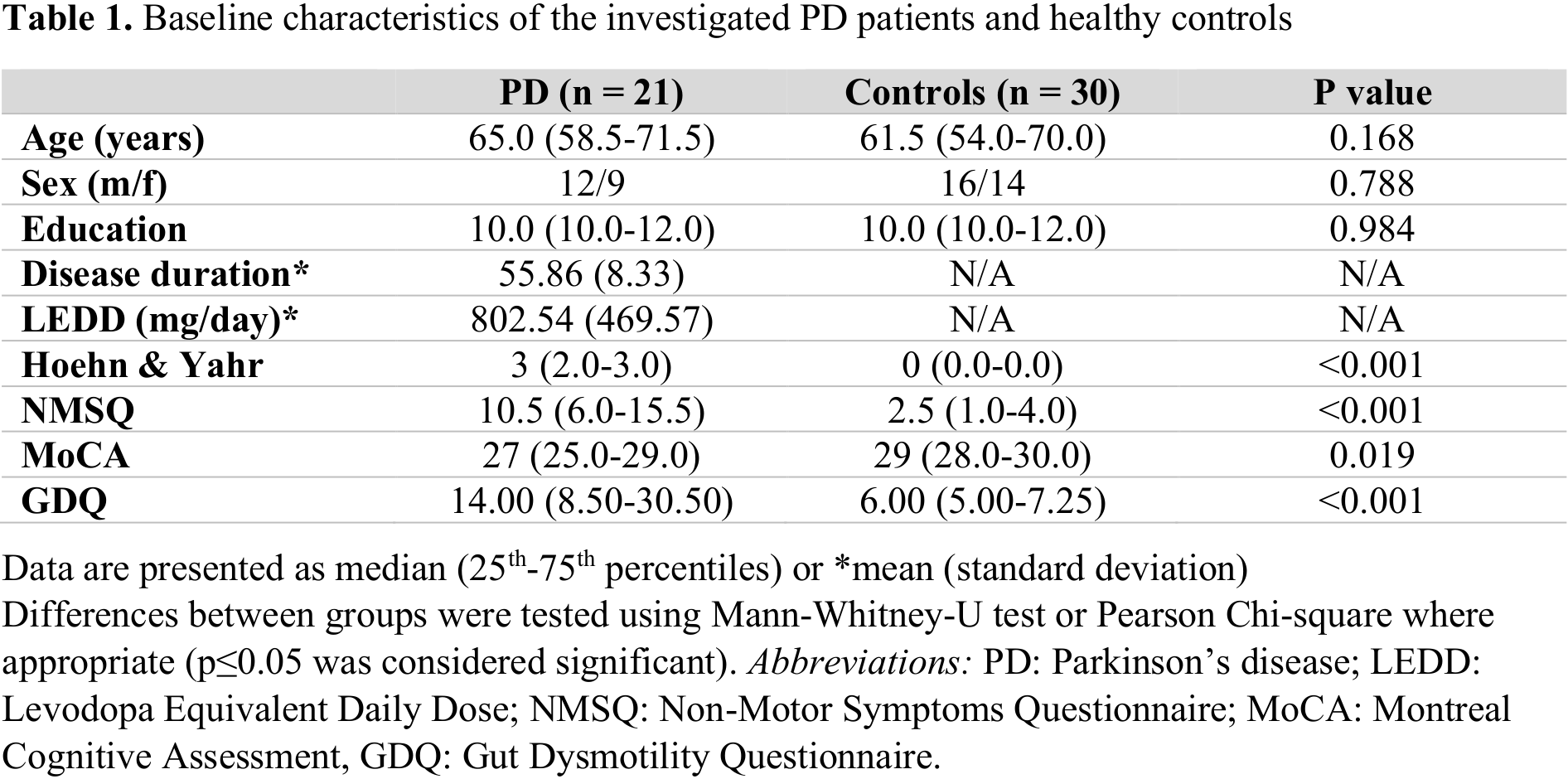Category: Rating Scales
Objective: To develop a questionnaire to screen for and monitor gastrointestinal symptoms in patients with Parkinson’s disease (PD), entitled Gut Dysmotility Questionnaire (GDQ).
Background: Gut dysmotility, including constipation, is one of the most common features of PD, occurring from prodromal to palliative stages of PD [1, 2]. However, PD-specific validated tools to clinically address this challenging problem are lacking.
Method: In phase 1, the GDQ was developed based on a detailed review of the current literature and expert opinion of different medical specialities. In phase 2, a cognitive pretesting (CP) was performed in 21 PD patients and 30 healthy controls (HC) using a first German version of the GDQ at the Department of Neurology, Technical University Dresden, Germany. The cognitive pretesting [3] was conducted with all subjects (PD and HC) and 11 neurologists by using three methods: Standard Pretest (examiner´s passive observation), Interview (divided in Think Aloud, Verbal Probing, and Confidence Rating) and Evaluation Questionnaire. Differences in demographic and clinical features between PD and HC were assessed using non-parametric tests.
Results: Preliminary results showed no significant differences in demographics between PD patients and HC so that both groups are comparable. As expected, PD patients and HC are significant different in both motor and non-motor symptoms (p<0.05). Additionally the GDQ total score was significantly higher in PD patients than HC, reflecting a higher amount of gastrointestinal symptoms (p<0.001) (Table 1). First analyses revealed that all assessed groups, PD patients, HC and physicians found the GDQ relevant (96.8%), easy to understand (74.2%) and of adequate length (80.6%).
Conclusion: The current development of the GDQ as screening and monitoring tool for gastrointestinal symptoms in PD revealed a positive response when being used by PD patients, HC and movement disorders specialists.
References: [1] Chaudhuri KR, Healy D, Schapira AHV. The non motor symptoms of PD disease. Diagnosis and management. Lancet Neurol 2006;5:235-45. DOI: 10.1016/S1474-4422(06)70373-8 [2] Klingelhoefer L, Reichmann H. Pathogenesis of Parkinson disease–the gut-brain axis and environmental factors. Nat Rev Neurol 2015;11(11):625-36. DOI: 10.1038/nrneurol.2015.197 [3] Lenzner T, Neuert C, Otto W. Kognitives Pretesting. Mannheim, GESIS – Leibniz-Institut für Sozialwissenschaften 2015 (GESIS Survey Guidelines). DOI: 10.15465/gesis-sg_010
To cite this abstract in AMA style:
V. Räder, K.R Chaudhuri, L. Batzu, V. Leta, H. Reichmann, B. Falkenburger, L. Klingelhoefer. The Gut Dysmotility Questionnaire (GDQ) for Parkinson’s disease: current development [abstract]. Mov Disord. 2020; 35 (suppl 1). https://www.mdsabstracts.org/abstract/the-gut-dysmotility-questionnaire-gdq-for-parkinsons-disease-current-development/. Accessed January 29, 2026.« Back to MDS Virtual Congress 2020
MDS Abstracts - https://www.mdsabstracts.org/abstract/the-gut-dysmotility-questionnaire-gdq-for-parkinsons-disease-current-development/

